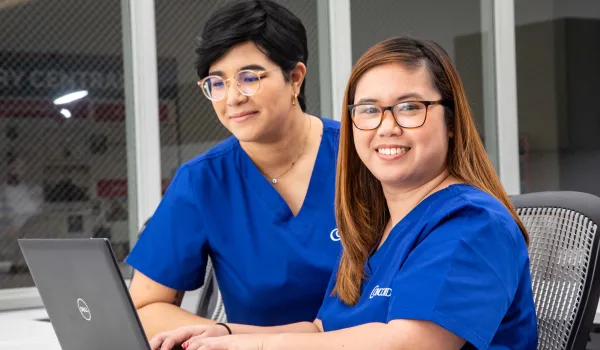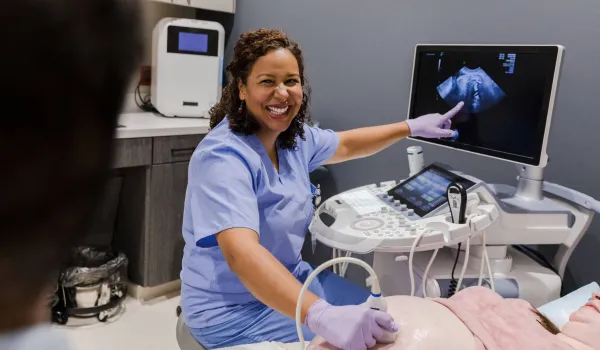
You've always been drawn to healthcare careers. You love helping people and making them feel better and healthier. There's only one problem.
You can't stand the sight of blood. Or vomit. Or any other bodily fluids many health care professionals might encounter on a regular basis.
Well, fear not! There's still hope - in the form of many health care careers were dealing with blood or bodily fluids is rare, if not non-existent, occurrence. And, several are offered as career programs at Concorde Career College!
Health care fields such as physical therapist (PT) assistant, occupational therapy (OT) assistant, medical office administration and radiologic technologist will still put you right in the thick of health care, working closely with physicians and nurses, while sparing much of the more uncomfortable by-products that come with the territory.
The perfect health care careers with no blood
"My parents always wanted me to be a medical doctor," said Lainisha McMiller-Turner, MOT, OTR/L, Occupational Therapy Assistant Program Director at Concordes campus in Miramar, Fla. "I, on the other hand, loved the health care field, but hated the sight of blood. I did a little research and found out that occupational therapy was the perfect field for me because it gave me the perfect opportunity to work in the medical field without daily exposure to blood."
While McMiller-Turner acknowledged seeing blood in some rare, sub-acute care settings, her love for helping others reach their rehabilitation goals far outweighed the occasional sight of blood.
"The beauty of OT is that you can help rehabilitate anyone, anywhere as long as your care is based on the client's goal of recovery," she said. "So in essence, you can limit the amount of blood and bodily fluids you see by choosing what setting you want to work."
PT is another viable alternative
Physical therapy aims to restore movement, function, work and recreational activities that might be limited because of disease, age or injury. Treatments can include instructing patients on exercises, teaching techniques to help the patient walk again or to newly using a wheelchair, discussing strategies to help a patient function fully, or therapeutic massage or treatment such as ultrasound or traction.
None of which involves dealing with blood or other bodily fluids.
Even subsets of a field provide relief
Tommy Rust, MEd., RRT, RCP, FAARC, Lead Program Director, Respiratory Therapy (RT), at the Concorde - Dallas campus, said that, while many areas of RT do involve working with blood and sputum, there are alternatives for those not wanting to come in contact with that aspect of the profession.
"For the squeamish at heart, there is pulmonary function therapist (certified pulmonary function therapist, CPFT, or registered pulmonary function therapist, RPFT)," Rust said. "Their major role is to perform diagnostic breathing tests in a laboratory. Registered therapists can become case managers, asthma educators, COPD educators, but all will have to do the same education activities."
Rust said he's had some students enroll in RT even knowing they had squeamish stomachs.
"We actually have contact with blood and sputum," he said. "Working in the emergency room you get everything. But, I've had students come in to keep from doing bed pans and wiping bottoms."
So, the lesson here is, don't allow a little squeamishness get in the way of pursuing a rewarding career helping people in your community. Just choose wisely when selecting your health care field, and you can enjoy a long, happy and blood-free career.
Take The Next Step Towards a Brighter Future
We have a Concorde representative ready to talk about what matters most to you. Get answers about start dates, curriculum, financial aid, scholarships and more!




